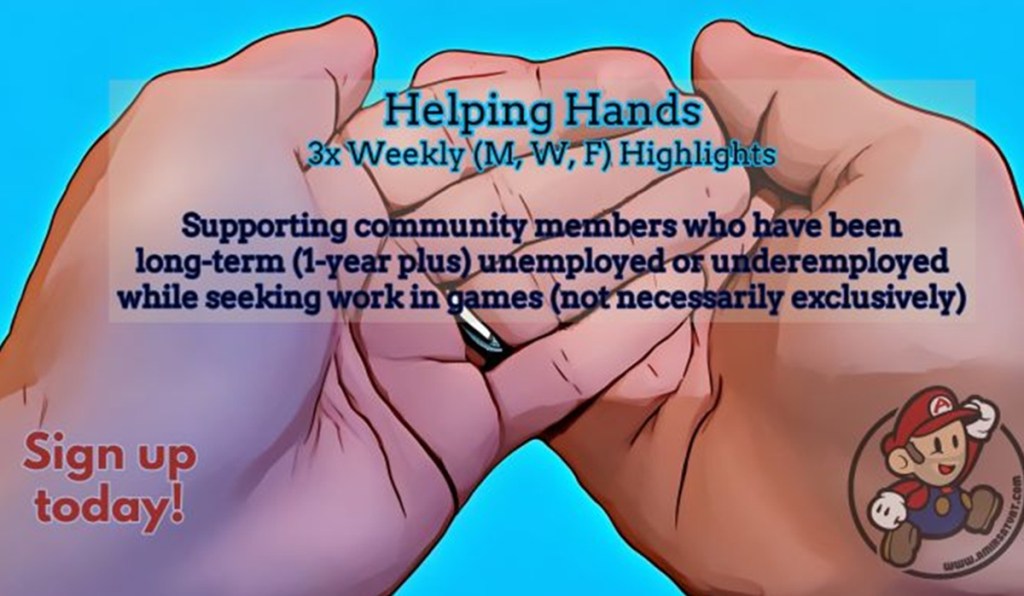Project Helping Hands is a new community-based initiative to help game industry job seekers who have been out of work or underemployed for more than a year.
Aiming to draw a spotlight for long-term job seekers in games, it’s a project led by Amir Satvat, the game job opening aggregator who has amassed a big following of 400,000 unique viewers on LinkedIn. (You can apply here).
“Our goal is to help long-term job seekers in games get the spotlight they deserve,” Satvat said in a LinkedIn post.
This effort could be a big deal for job seekers as Satvat has been able to help more than 2,800 people find jobs. Satvat is a “top voice” on LinkedIn for games and he has 101,000-plus followers. He has also amassed a lot of data about jobs in the game industry, which is regrettably not transparent about hirings and firings. More than 32,000 people have been laid off in games in the past three years.
If you’ve been unemployed or underemployed for 12 months or more, and have been seeking roles in games as part of your job search, this program is for you. You don’t need to have been exclusively looking in games, but it does need to be at least part of your goal, Satvat said.
He said that three times a week, he will spotlight up to 15 individuals looking for new opportunities.
Applicants can fill out a form, and Satvat will randomly select participants to feature along with a short bio you provide.
How it works
On his LinkedIn profile, Satvat has begun listed the profile details of 15 people each week who have been looking for work for a year or more. The post includes the name, function, years of experience, location, and whether the person is open to remote work.
Satvat is accepting submissions through a Google form and each application must be complete. He will adjust the project as needed. Satvat started posting community member profiles on October 18 (here’s another one and another one).
The long-term unemployed?
It’s not clear how many people have been stuck looking for a job in games for more than a year. But Satvat’s data gives him insights on the issue of ageism in games.
He noted that for younger game job seekers — those with three or fewer years of work experience who have never worked in games — the chances of securing a role in the industry over 12 months are just 1% to 2%.
And, after two years of collecting data, Satvat said he knows that the odds of finding a role in games for those 50 and over are roughly the same.
While the overall likelihood of finding work in games over 12 months is around 7%, and this number rises to 20-25% for all who have previous experience in the industry, these statistics show a pronounced peak in opportunities for those in their late 20s and 30s, with meaningful decline by the time they reach their 40s, Satvat said.
“We need to be much more aware of how challenging the odds become for those in our industry as they age,” Satvat said. “If we feel empathy for younger applicants locked out of opportunities, I’m equally raising my hand in solidarity for those with the most experience – because, numerically, I now know that, at some point, they face the same struggle.”
This new service to help those who are out of work for a long time will likely help those who are also subjected to ageism.
Source link

